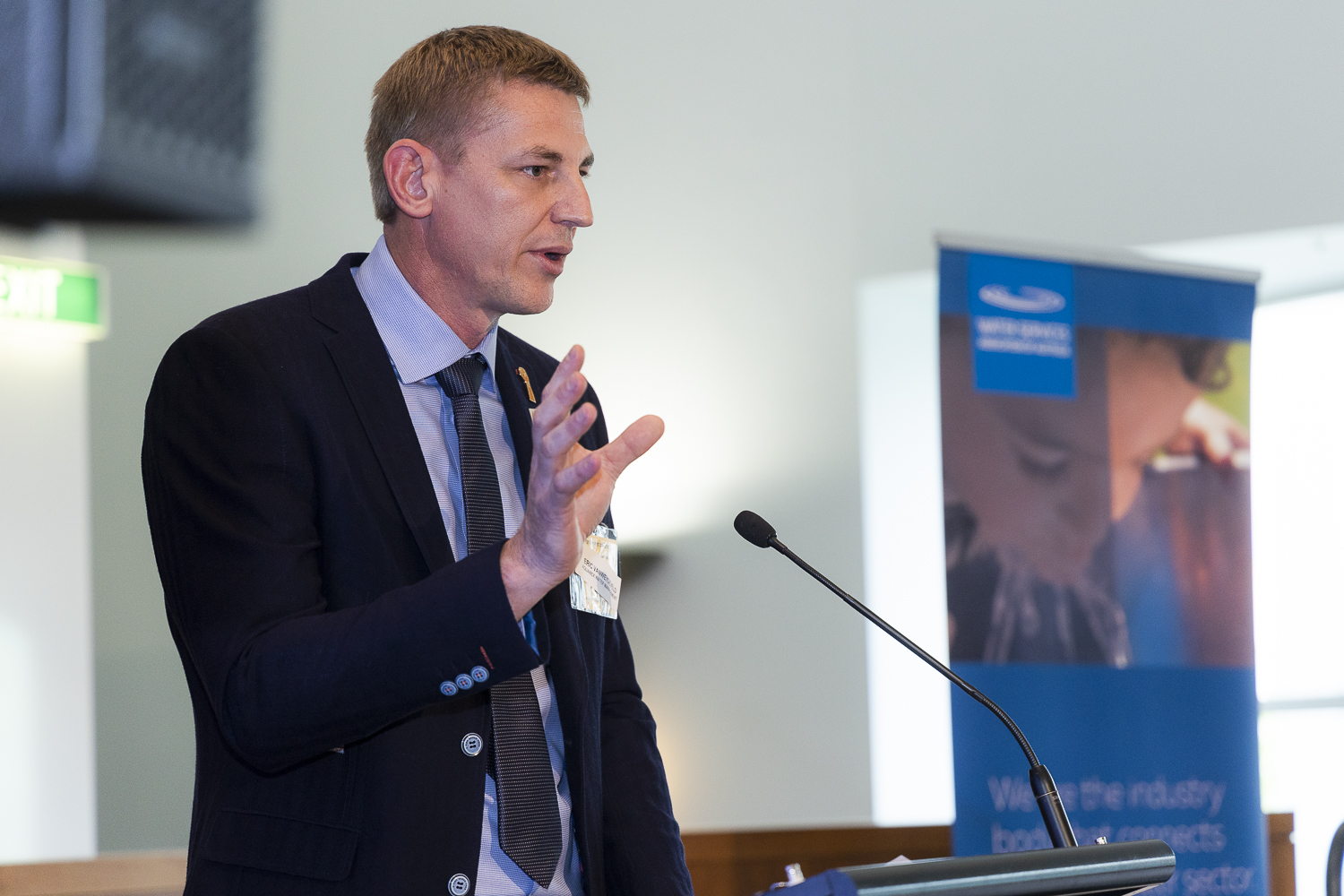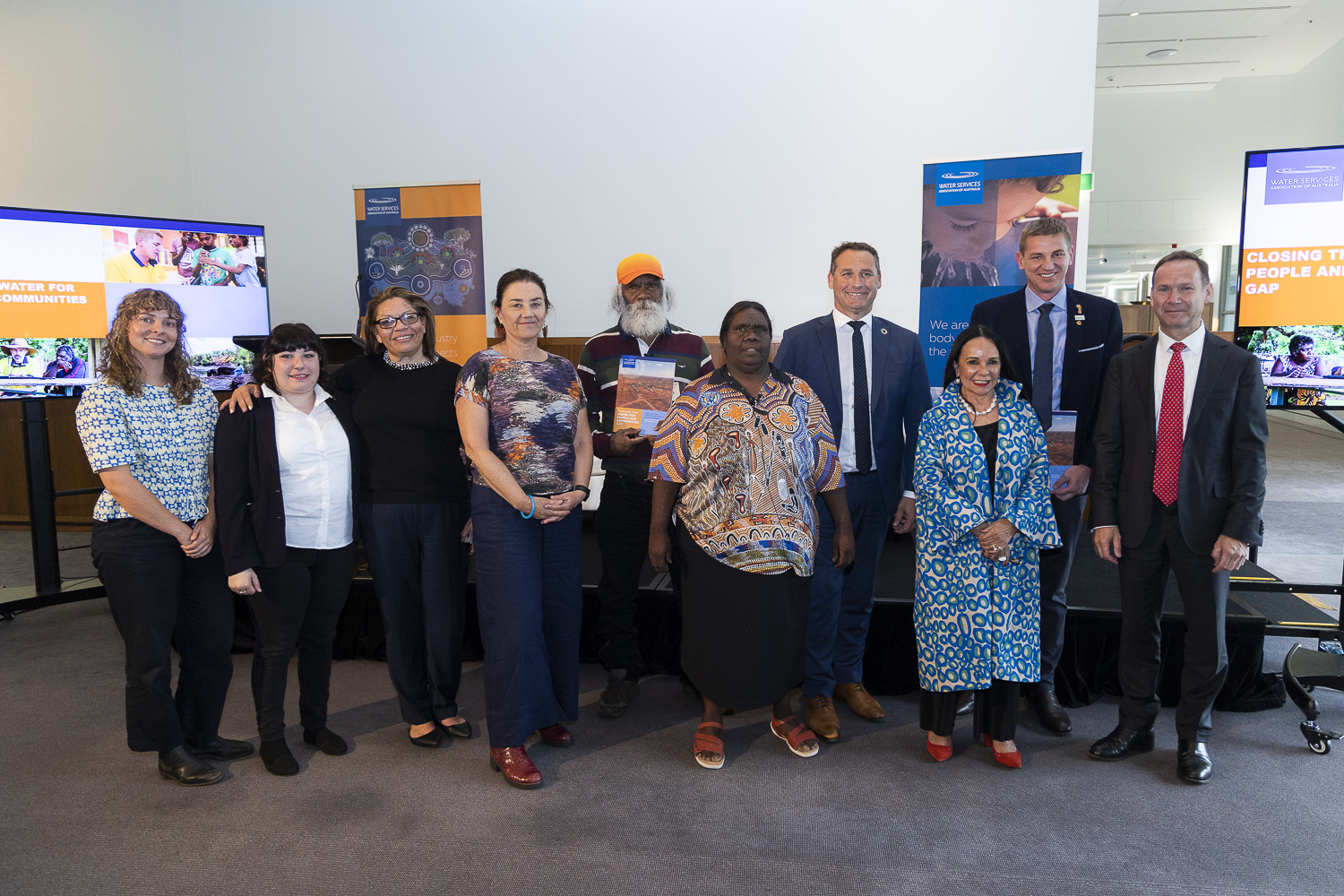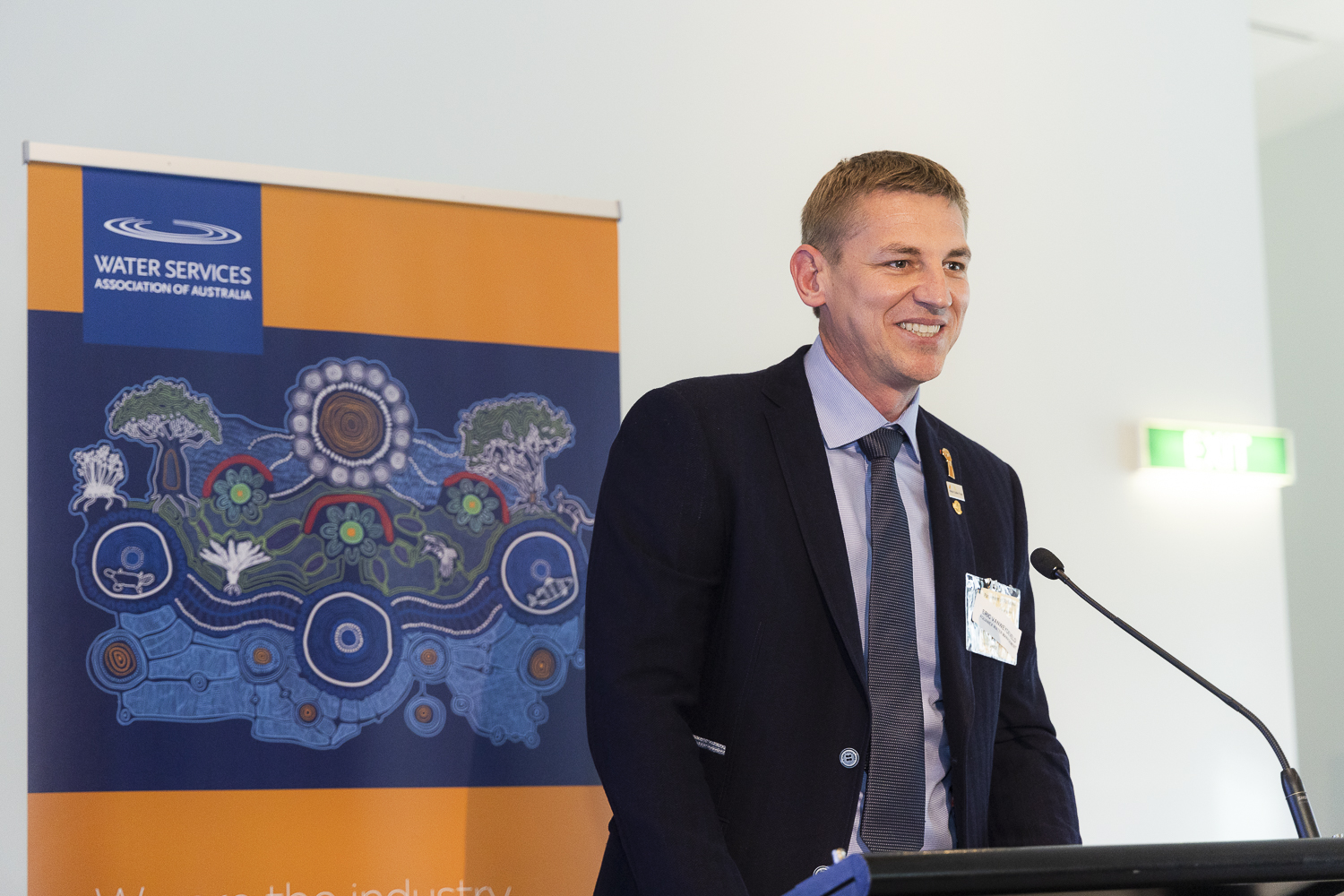Whether you live in Sydney, Shepparton or Yuendumu, a minimum quality standard should be met for drinking water. That’s currently not the case, with some First Nations’ communities’ drinking water having levels of uranium, arsenic, fluoride and nitrate that are above levels of the Australian Drinking Water Guidelines, particularly in remote areas. More than 500 First Nations’ communities do not have regular water quality testing.
These facts were highlighted this week by Churchill Fellow Eric Vanweydeveld who launched his new report recommending ways to improve water services to First Nations’ remote communities.
The report, commissioned by the Water Services Association of Australia (WSAA) was launched by the Minister for Indigenous Australians, Linda Burney at Parliament House.
The report was developed over 18 months and is based on more than 170 interviews across a range of stakeholders in the NT, SA, WA, QLD as well as the Federal Government.
Eric said: “My report includes case studies which show that dirty or smelly water, or taps clogged with calcium deposits cause significant knock-on effects for communities beyond drinking water, which adds to the urgency of the recommendations.”
Adam Davey, CEO of the Winston Churchill Trust commended Eric on his ongoing work in this vital area. “I am heartened to see Churchill Fellows, like Eric, continuing to make important impacts in their areas of expertise, to help improve Australian society,” said Mr Davey.
Eric’s report, available here, made numerous recommendations including:
-
All states and territories should formalise the Australian Drinking Water Guidelines to ensure at least a minimum quality standard.
-
Ongoing significant investment in this area. It has been estimated that it will cost more than $2.2 billion to fix the problem.
-
First Nations communities need a stronger voice in the services they receive.


